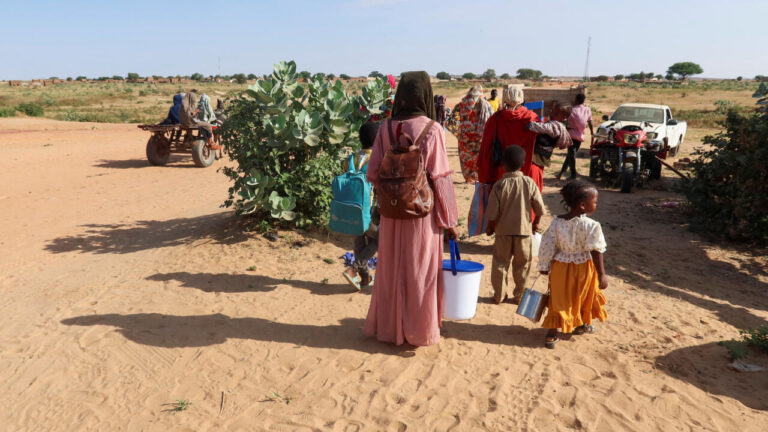Sudan’s warring parties have made no progress towards a ceasefire in their latest talks, instead reiterating past agreements to improve access to humanitarian aid, host Saudi Arabia said on Tuesday.
“The facilitators regret that the parties were unable to agree on a ceasefire during this first round, as there is no acceptable military solution to this conflict,” the official Saudi Press Agency reported.
Fighting erupted in April between the forces of army chief Abdel Fattah al-Burhan and his former deputy Mohamed Hamdan Daglo, who commands the paramilitary Rapid Support Forces (RSF).
More than 10,000 people have been killed in the war so far, according to a conservative estimate by the Armed Conflict Location & Event Data project.
Saudi Arabia hosted talks in the Red Sea coastal city of Jeddah during the war’s first weeks which resulted in the Jeddah Declaration, a commitment to spare civilians and civilian infrastructure and to let in badly needed aid.
But within a week United Nations aid chief Martin Griffiths told AFP there had been “important and egregious” violations of the agreement.
Multiple early truces were violated as well.
The United States, which has helped facilitate the Jeddah talks, tried to downplay expectations for this latest round, with officials stressing it was too early to discuss a lasting political solution.
However they did raise the possibility the talks would work on “achieving ceasefires”, and Saudi Arabia voiced hope for “a political agreement under which security, stability and prosperity will be achieved for Sudan and its brotherly people”.
The results have so far come up well short of that, and it was unclear on Tuesday what the next steps would be.
The two sides agreed to work with the UN “to address obstacles to the delivery of relief aid” and identify contact points to facilitate the transit of aid workers, SPA reported.
They also agreed to “confidence-building measures” including detaining prison escapees, it said, an apparent reference to top figures under former strongman Omar al-Bashir who broke out of detention facilities early on in the war and aligned with the army.
“It is now up to both the Sudanese Armed Forces and the Rapid Support Forces to fully adhere to their responsibility to implement what has been agreed upon,” it said.
US Secretary of State Antony Blinken last week warned the RSF against what Washington called an “imminent large-scale attack” on North Darfur’s capital, where thousands were seeking refuge from fighting.
The RSF has in recent weeks claimed army bases in all but one of Darfur’s major cities, raising fears it could take over the region.
North of the Sudanese capital Khartoum on Tuesday, a massive fire ignited at an RSF-controlled oil refinery which the paramilitaries blamed on an army air strike, though the army said “a fuel tanker belonging to the militia exploded”.
(AFP)



